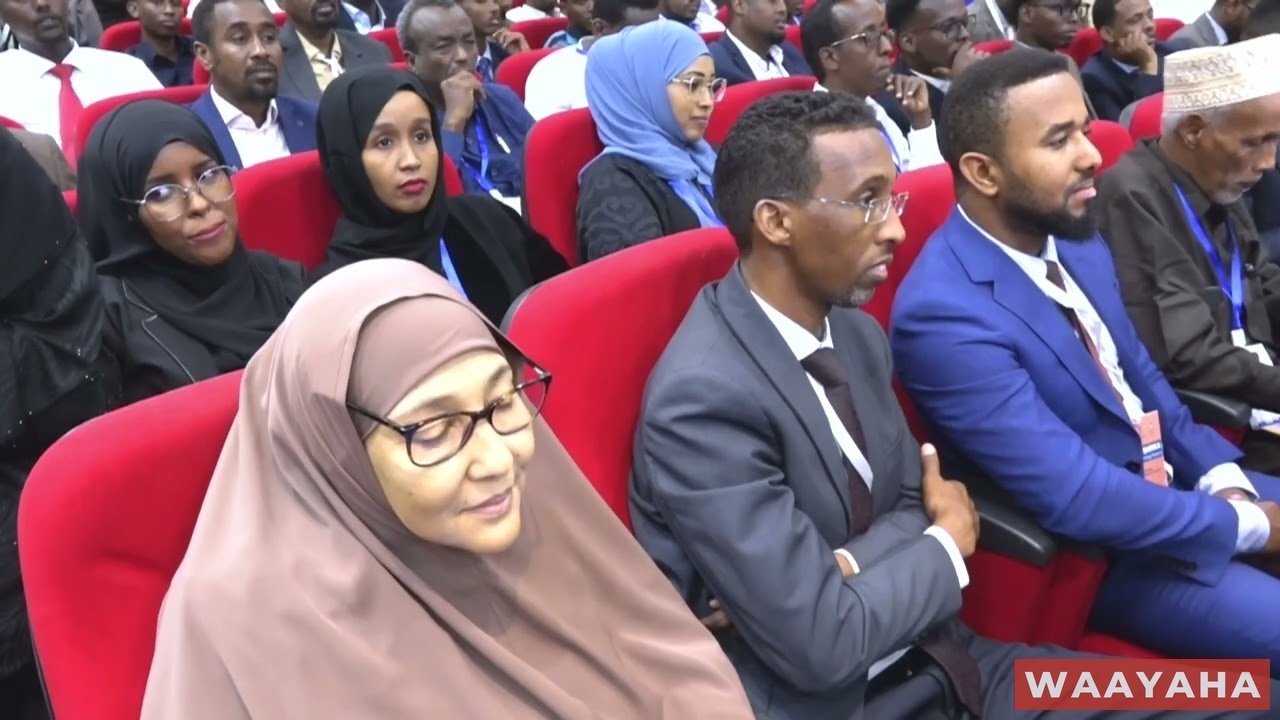After a 35-year hiatus, the 35th Congress of Somali Studies, a global gathering of Somali scholars, intellectuals, and experts, has finally reconvened in Mogadishu. Hosted by the President of the Federal Republic of Somalia, Hassan Sheikh Mohamud, the congress serves as a platform to address the nation’s pressing challenges in governance, development, security, economy, and politics.
The Minister of Education, Higher Education, and Culture, Farax Sheikh Abdiqadir, emphasized the significance of this congress, convening at a crucial juncture when Somalia’s nation-building efforts have gained substantial momentum. He called upon the Somali scholars and experts to confront the obstacles hindering the nation’s progress head-on, urging them to leverage their expertise to pave the way for the Somali people’s advancement.
“Somali intellectuals are the nation-builders,” the Minister declared, “but we need a paradigm shift in our approach. The intellectuals must move beyond mere observation and actively contribute to shaping the future of our nation.”
The President extended a heartfelt appeal to the local universities, particularly those in Mogadishu and Baidoa, as well as the media, to engage with the visiting scholars. He encouraged them to conduct interviews, document their insights, and amplify their voices, recognizing the wealth of knowledge and experience these intellectuals possess.
Furthermore, the President addressed the scholars themselves, acknowledging the challenges they may have faced in accessing the Somali people and their stories during their research endeavors. “While you were away, these people have lived through the turmoil,” he said. “Now that you are among them, seize this opportunity to immerse yourselves in their narratives and experiences.”
Reflecting on the significance of this congress, the President underscored the vital role of academia and research in addressing the obstacles to Somalia’s nation-building, economic development, and intellectual growth. He affirmed the government’s commitment to supporting Somali scholars and researchers in finding sustainable solutions to the challenges facing the Somali people’s unity and progress.
“Our nationhood remains intact, but the threads that bind us as a nation-state have been strained,” the President acknowledged. “We urgently need a strong, centralized government that can harness the power of our national identity and guide us through the challenges that lie ahead.”
He acknowledged the arduous journey Somalia has endured over the past 34 years, with each passing day and year bringing both progress and setbacks. However, he remained optimistic, stating, “Although our progress has been slowed, our determination remains unwavering. We are committed to reaching our destination, even if it takes longer than anticipated.”
The President emphasized that progress requires sacrifice and perseverance, reminding attendees that every worthwhile endeavor, whether individual or collective, demands a price. “Nothing valuable comes without a cost,” he asserted.
The 35th Congress of Somali Studies, last held in Mogadishu in 1979 and in the early 1990s, has brought together over 400 participants, including Somali scholars, international researchers, and representatives from East African universities. The congress’s deliberations are expected to yield valuable insights and recommendations for advancing Somali society.
As Somalia emerges from decades of turmoil, this congress represents a resurgence of the nation’s intellectual tradition, a beacon of hope for a brighter future driven by knowledge, unity, and unwavering determination.













